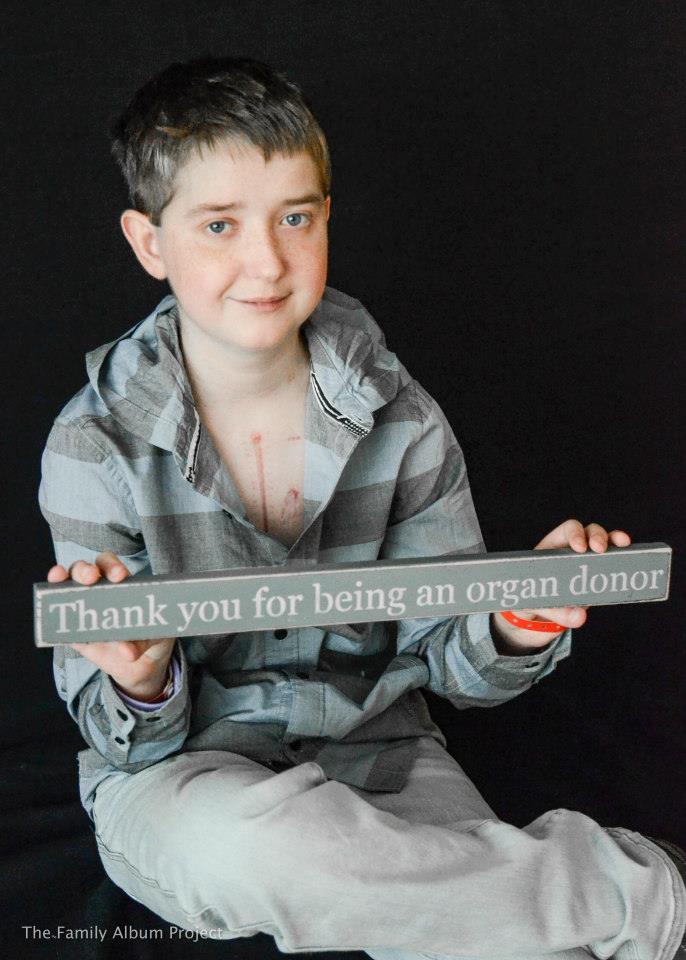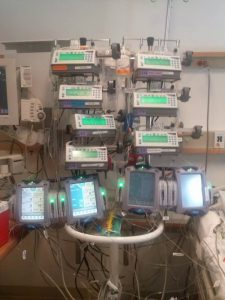Promoting Organ Donation by Sharing My Son’s Good Fortune
Written by |

National Donor Day in the U.S. was on Feb. 14. However, every day when I look at my son, I feel inspired to raise awareness about the lifesaving benefits of organ, eye, and tissue donation. And what better way to spread awareness is there than sharing Cullen’s transplant story?
A year before Cullen was listed, his health was rapidly declining from pulmonary hypertension (PH), and so too were his options for slowing down the process. To distract him from how sick and worried he was feeling, one evening our family took him to his favorite Chinese restaurant for dinner.
At the end of the meal, I noticed Cullen rolling his eyes at the message in his fortune cookie. It read: “Good health will be yours for a long time.” I took it as a symbol of hope and placed it in my wallet where it remains to this day.
I didn’t pay attention to the lucky numbers “8” and “6” printed (in that order) on the slip of paper until Cullen received his transplant call on Aug. 6.
Faith, fortune, and luck possibly helped get him to transplant, but it was Cullen’s courage, strength, and determination that pushed him forward to where he is now, five years after a heart and double-lung transplant.
He wasn’t taken into surgery until the day after the call, so we celebrate his transplant anniversary on Aug. 7. The recovery process was not for the faint of heart, so thank God for the healthy transplanted one beating in his chest.
Hours after his surgery he already looked healthier, but it was daunting to see him surrounded by and attached to an enormous amount of medical equipment.
He was expected to be reliant on all of it for at least a day, but heavily sedated Cullen startled everyone by waking five hours after transplant and lifting his arm in a fist pump of triumph.
On the third day, his first chest tube was removed, but day four was when things got real. He was weaned off some of the medication to allow his team to assess his ability to breathe on his own. Once they were satisfied that he could, they took out his breathing tube, and Cullen began taking his first unassisted breaths with his brand new lungs.
Through the rest of the day, they also retired several other things, including milrinone, the heart failure medication he no longer needed. Thanks to his new heart and lungs operating perfectly, Cullen continued to progress well, but it was certainly no walk in the park. He was in a lot of pain and discomfort, particularly from the drainage tubes attached to his abdomen.
His dad, Brian, describes what it was like for Cullen: “Imagine doing a few hundred situps a day and add to that a constant, persistent cough for about a week. Once your stomach muscles are burning and you can’t stand the thought of another situp or one more cough, multiply that pain by 10.”
Coughing was a necessary evil because it helped to clear his lungs of the mucus and blood that had accumulated following transplant. Coughing had an evil twin called respiratory treatments — they were so painful, and he had to endure them several times a day.
On Aug. 12, Cullen could sit in a chair, and by the next day he could stand with assistance. His doctors were pleased to inform us that he was ahead of schedule with his recovery and they were trying to catch up to him.
Removing his drainage tubes helped ease a lot of his discomfort, and for the first time in five years he was able to sleep without supplemental oxygen. The next day he took his first walk around the nurses’ station.
One doctor emphasized to Cullen that he was recovering from one of the most intense surgeries there is and he was getting through it with impressive bravery and determination.
The big question that people often ask him is, “Was it worth it?”
He is still alive, so his answer is always a resounding, “Yes!”
However, Cullen doesn’t mince his words when he describes how difficult his recovery was or how much he has endured since his transplant. He has experienced unexpected complications, struggles with rejection, and other challenges, but they haven’t kept him from living his life.
No word exists in any dictionary that can sufficiently express how grateful he is to his donor for giving him “good health for a long time” and the confidence to hope for even longer.
For information on organ donation and to register as an organ donor in the U.S., click here; for Canada, click here; for other countries, click here.
It’s important to discuss your wishes with your loved ones, so please don’t forget to do that as well.
“Organ donation is not a tragedy, but it can be a beautiful light in the midst of one.” —Author unknown
***
Note: Pulmonary Hypertension News is strictly a news and information website about the disease. It does not provide medical advice, diagnosis, or treatment. This content is not intended to be a substitute for professional medical advice, diagnosis, or treatment. Always seek the advice of your physician or other qualified health provider with any questions you may have regarding a medical condition. Never disregard professional medical advice or delay in seeking it because of something you have read on this website. The opinions expressed in this column are not those of Pulmonary Hypertension News or its parent company, Bionews Services, and are intended to spark discussion about issues pertaining to pulmonary hypertension.






Leave a comment
Fill in the required fields to post. Your email address will not be published.